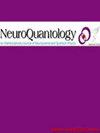Distributed Multi-Modal Classification Approach for Breast Cancer Prediction Based on WBCD Through Machine Learning Paradigms
Q4 Physics and Astronomy
引用次数: 0
Abstract
Cancer death is one of the main challenges that the mankind is facing in developing countries. Although there are many strategies to prevent cancer in the first place, some types of cancer remain incurable. Breast cancer is one of the most common types of cancer and its early detection is crucial for its treatment. One of the most crucial aspects of breast cancer treatment is the accurate diagnosis. Numerous studies have been published in the literature to predict the type of breast cancer. Data on breast cancer tumors from Dr. William H. Wahlberg of the Hospital of the University of Wisconsin was used to predict breast tumor type in this study. This dataset was subjected to data visualization and machine learning techniques, such as Distributed logistic regression, Distributed k-nearest neighbors, and distributed naive Bayesian. The aim of this study was to perform a comparative study of breast cancer detection and diagnosis using data visualization and machine learning tools. The results obtained using the Distributed logistic regression model with all features included show the best classification accuracy, and the proposed approach reveals an improvement in accuracy. To achieve this, machine learning classification methods have been used to tune a function that can predict the discrete class of new entries, and modern technologies with new hybrid frameworks and models have been introduced for higher accuracy and to store large amounts of data and security.基于WBCD的分布式多模式分类方法在癌症预测中的应用
癌症死亡是发展中国家人类面临的主要挑战之一。尽管首先有许多预防癌症的策略,但某些类型的癌症仍然无法治愈。癌症是癌症最常见的类型之一,其早期发现对其治疗至关重要。癌症治疗最关键的方面之一是准确的诊断。文献中已经发表了许多预测癌症类型的研究。在这项研究中,威斯康星大学医院的William H.Wahlberg博士的乳腺癌症肿瘤数据被用于预测乳腺肿瘤类型。该数据集采用了数据可视化和机器学习技术,如分布式逻辑回归、分布式k近邻和分布式朴素贝叶斯。本研究的目的是使用数据可视化和机器学习工具对癌症的检测和诊断进行比较研究。使用包含所有特征的分布式逻辑回归模型获得的结果显示出最佳的分类精度,并且所提出的方法显示出精度的提高。为了实现这一点,机器学习分类方法已被用于调整可以预测新条目的离散类别的函数,并且引入了具有新的混合框架和模型的现代技术,以获得更高的准确性,并存储大量数据和安全性。
本文章由计算机程序翻译,如有差异,请以英文原文为准。
求助全文
约1分钟内获得全文
求助全文

 求助内容:
求助内容: 应助结果提醒方式:
应助结果提醒方式:


